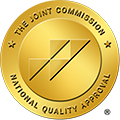Heroin, an opioid derived from the opium poppy plant, is notoriously addictive. This drug induces a profound rush of euphoria by binding to the opioid receptors in the brain. In recent years, a concerning trend has emerged in the U.S. As more states enact stricter laws designed to make it harder to access prescription opioids, many people who have already developed a tolerance to opioids turn to illicit heroin.
With continual heroin use, you’ll need increasing amounts of the drug to achieve the same pleasurable effects. At this point, any attempts to reduce usage or quit altogether can trigger a host of severe withdrawal symptoms.
Common Heroin Withdrawal Symptoms
Heroin withdrawal can cause various unpleasant physical and psychological effects that are difficult to manage without help.
- Muscle aches: One of the most common symptoms, muscle pain can range from mild to severe.
- Sweating: Excessive sweating, often accompanied by cold flashes.
- Restlessness: A persistent feeling of discomfort and an inability to stay still.
- Runny nose and teary eyes: These can resemble cold or flu symptoms.
- Insomnia: Difficulty falling asleep or staying asleep.
- Diarrhea: Intestinal distress leading to frequent and loose bowel movements.
- Dilated pupils: Noticeably larger pupils than usual.
- Nausea and vomiting: An upset stomach is common during withdrawal.
- Tremors: Involuntary, rhythmic muscle contractions leading to shaking movements in one or more body parts.
- Anxiety and depression: A heightened sense of fear, worry or sadness.
- Agitation: Increased irritability and sensitivity.
- Intense drug cravings: A strong desire to use heroin again.
- Concentration difficulties: Challenges with focusing or maintaining attention on tasks.
Duration of Heroin Withdrawal Symptoms
The intensity and duration of withdrawal symptoms can vary based on factors such as the length of heroin use, typical dosage, your overall health and your metabolism and weight.
- Early symptoms can begin within six to 12 hours after the last dose.
- Peak intensity often occurs between one to three days after cessation.
- Symptoms subside typically within five to seven days, though some people experience a phenomenon called post-acute withdrawal syndrome that persists for weeks or months.
The Acworth Outpatient Detox Approach to Heroin Withdrawal
At Acworth Outpatient Detox, we understand the challenging nature of heroin withdrawal. Our compassionate and evidence-based approach involves these components.
- Medically supervised detoxification: The outpatient detox process begins with clearing your body and brain of all traces of heroin.
- Symptom management: We use medications, as necessary, to alleviate withdrawal symptoms and keep you as comfortable as possible.
- Holistic support: Beyond physical symptoms, we recognize the psychological challenges of withdrawal and offer substance abuse counseling to address the emotional aspects of recovery.
Break the Cycle of Addiction Today
Many people keep using heroin because they worry about what withdrawal will be like. At Acworth Outpatient Detox, we effectively and safely manage your withdrawal symptoms. Medical personnel are available 24/7 to guide you through the process and make recovery attainable.
When you enroll in our program, you’ll receive outstanding care without needing to put your life on hold. Get in touch with our admissions team to find out whether our outpatient approach is right for you.






